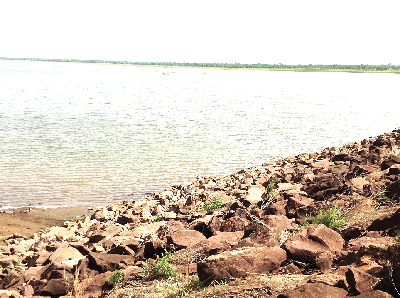Ghana Irrigation Development Authority to develop irrigation schemes in the north
 The Ghana Irrigation Development Authority (GIDA) is to build low technology irrigation infrastructure in lowland areas in the three northern regions to harvest and manage rainwater for rice cultivation.
The Ghana Irrigation Development Authority (GIDA) is to build low technology irrigation infrastructure in lowland areas in the three northern regions to harvest and manage rainwater for rice cultivation.
Advertisement
According to the Chief Executive Officer (CEO) of GIDA, Dr Ben Nyamadi, this is to promote the cultivation of rice by guaranteeing the availability of water and reducing drastically the overreliance on rainfall.
“We are targeting 100,000 hectares of low land area. We would build bonds that would trap the water and we would also create channels where the water could be drained when it is too much,” he stated.
Dr Nyamadi spoke to journalists in Tamale at the sidelines of a six-day national training programme for irrigation engineers and supervisors of GIDA organised by the Northern Rural Growth Programme (NRGP) in partnership with GIDA.
The NRGP is an eight-year agricultural project jointly funded by the International Fund for Agricultural Development (IFAD), African Development Bank (AfDB) and the Government of Ghana.
Dr Nyamadi said Ghana was underutilising its irrigation potentials and attributed it to low investments in that sector.
“We have 1.9 million hectares of potential irrigable land and only 209,000 hectares, representing about five per cent, has been developed,” he noted.
He mentioned that the country had 56 government-operated irrigation schemes covering a total of 10,200 hectares of farmlands.
He said the biggest irrigation schemes in the three northern regions were the Botanga, Tono, Vea, Golinga and Libiga Irrigation schemes.
Dr Nyamadi said the training being offered the engineers was geared towards improving the standard of irrigation facilities.
He said many irrigation dams did not meet the standard and as a result, easily got bridged.
Dr Nyamadi revealed that GIDA was to undergo restructuring to enable it to enter into public-private-partnership agreements with private entities to pool resources towards developing irrigation dams and other facilities.
The National Co-ordinator of the NRGP, Mr Roy Ayariga, said the NRGP had identified 21 uncompleted irrigation schemes throughout the country that were started by other projects.
“Our funding partners have given us the green light to complete these schemes and also complete inland valleys mainly in the south of Ghana,” he said.
Mr Ayariga said under the infrastructural component, the NRGP had rehabilitated several feeder roads to open up heavy production areas and it also planned to construct warehouses and pack houses.
He attributed the success of the NRGP to co-financing, explaining that “one organisation could not fund all these interventions, especially the infrastructural aspects.”
He, therefore, commended IFAD and AfDB for co-financing the NRGP.
By Nurudeen Salifu/Daily Graphic/Ghana



